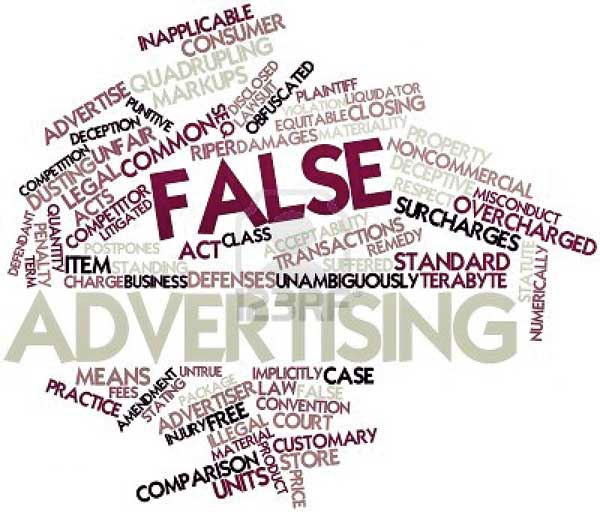Reply To:
Name - Reply Comment
Last Updated : 2024-05-04 21:04:00
 Have you purchased anything that did not correspond to what had been advertised or promised? Many of us, at some time or another have been persuaded to purchase something, only to discover that we were misled by false or deceptive statements. Advertising has the potential to persuade people into making ‘informed’ purchases. By the same concept, customers have the right to know what they are buying, and that all necessary information on the label or brochure is truthful.
Have you purchased anything that did not correspond to what had been advertised or promised? Many of us, at some time or another have been persuaded to purchase something, only to discover that we were misled by false or deceptive statements. Advertising has the potential to persuade people into making ‘informed’ purchases. By the same concept, customers have the right to know what they are buying, and that all necessary information on the label or brochure is truthful.


Add comment
Comments will be edited (grammar, spelling and slang) and authorized at the discretion of Daily Mirror online. The website also has the right not to publish selected comments.
Reply To:
Name - Reply Comment
US authorities are currently reviewing the manifest of every cargo aboard MV
On March 26, a couple arriving from Thailand was arrested with 88 live animal
According to villagers from Naula-Moragolla out of 105 families 80 can afford
Is the situation in Sri Lanka so grim that locals harbour hope that they coul

03 May 2024